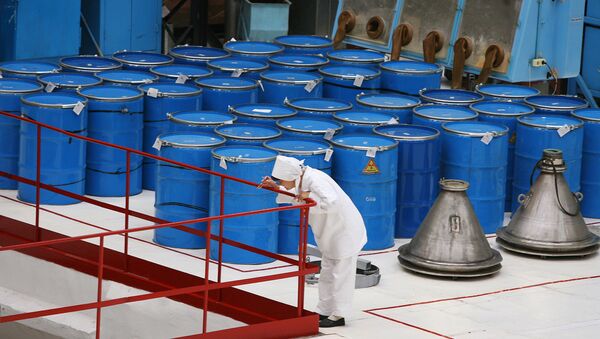Over 50 million tons of MSW are produced in Russia annually. The disposal system for such raw materials, which are promising for industry, is underdeveloped: reusing, recycling, and burning as fuel to generating heat and electricity are currently rare.
According to Dmitry Glushkov, an associate professor of the TPU Research School of High-Energy Physics, adding waste to a thermal power plant composite fuel may serve as the basis for reducing the total amount of buried MSW, encourage the development of related MSW treatment technology and cut thermal coal consumption for power generation.
READ MORE: Magnetic North Pole's 'Pretty Fast' Moving to Russia's Siberia — Scientists
He explained that the research team had studied ignition and combustion dependencies and characteristics for composite liquid fuels containing fine-grained particles of MSW (wood, rubber, plastic and cardboard) in the conditions that are found in boiler furnaces.
"It has also been determined that fuels with MSW are notable for lower nitrogen oxide and sulfur oxide concentrations in gaseous combustion products as compared to fuels without municipal wastes. The maximum difference in the concentrations of NOx and SOx for such fuels reaches 70 percent and 45 percent, respectively", he noted
In 2017, TPU researchers developed a set of composite liquid fuels based on industrial wastes (low-grade coal, water and flammable liquid) whose combustion temperature is comparable to that of thermal coal with less greenhouse gas emissions.
Researchers say that the wide use of promising fuels would in practice help in solving global environmental and energy problems.




